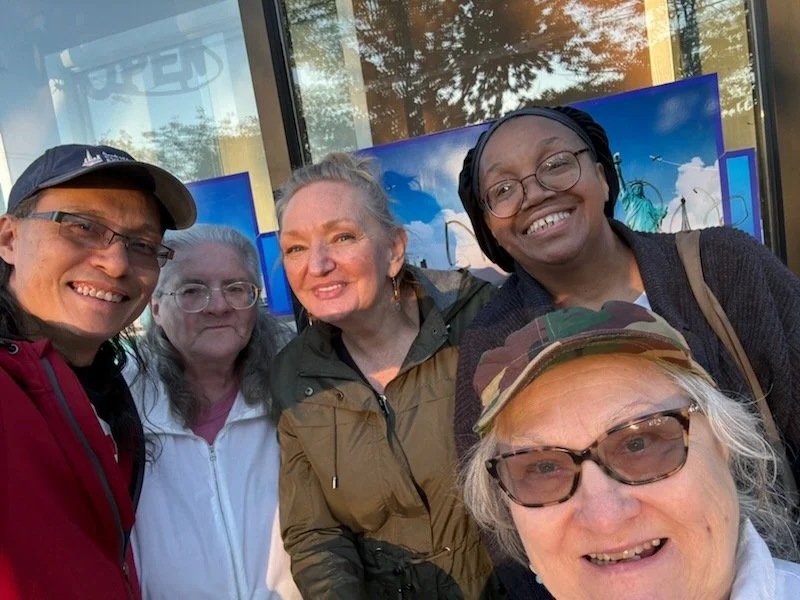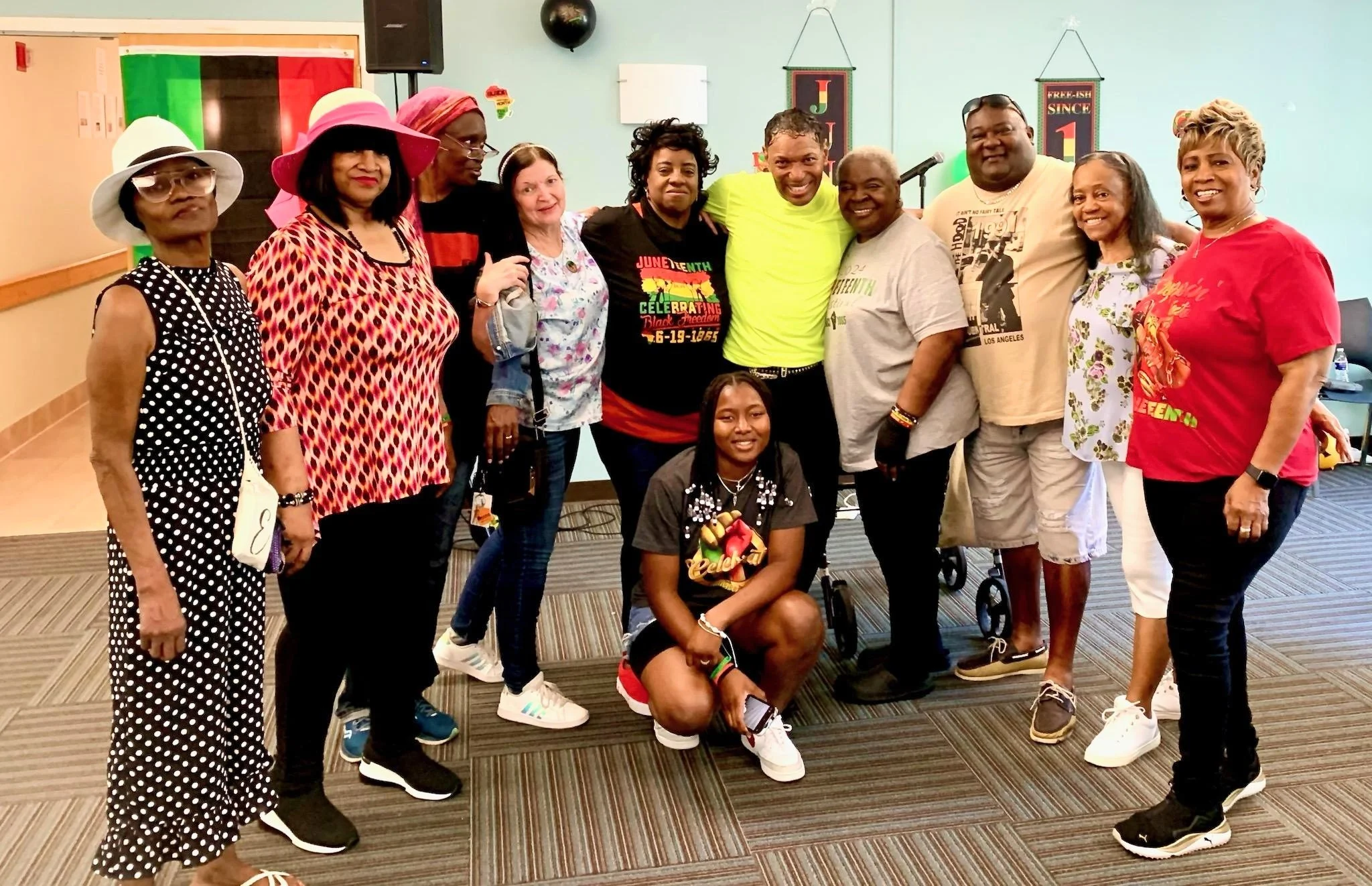Diversity, Equity, Inclusion, and Justice
H.O.M.E. is committed to working independently and in partnership to dismantle structural racism in Chicago, and to transform our culture into one motivated by human empathy, respect, and full inclusion.
Diversity, Equity, Inclusion, and Justice Statement
Approved by the Board of Directors on March 23, 2022
Each human being is unique, beautiful, and has intrinsic worth. We flourish when we are heard, seen, and respected by one another for who we are. To marginalize any person or group of people is to commit violence to all. A just society is based on the premise that each person has gifts to share as well as basic needs like shelter and food to fill.
Housing Opportunities and Maintenance for the Elderly (H.O.M.E.) embodies this truth by advancing a culture of the inclusive community in the intergenerational housing that it operates, the direct services it provides in the community, and in its internal operations. H.O.M.E. recognizes that an integrated, interdependent community does not label any group of people as “other.” In a healthy political society, as in a healthy community, every person matters.
H.O.M.E.’s purpose is in H.O.M.E.’s name: to provide the warmth of “home” rather than just “housing” as the vehicle of uplift for older people with low incomes in Chicago. H.O.M.E. is a place where seniors experience community with people of all ages.
People are complex beings who hold multiple identities. H.O.M.E. is proudly and intentionally inclusive of people of all races, gender identities, sexual orientations, religions, and abilities. However, we all have one thing in common: everyone ages. Life does not segregate.
H.O.M.E. is dedicated to advancing diversity, equity, inclusion, and justice in its governance, staffing, program operations, and housing. By practicing diversity, H.O.M.E. celebrates and accommodates each person’s uniqueness. Equity means we are paying extra attention to serving populations that have been historically disadvantaged or excluded to ensure we improve outcomes for all. Inclusion demonstrates that H.O.M.E. is not only welcoming but inviting. Justice is the lens by which H.O.M.E. rejects discrimination and promotes the beloved community.
H.O.M.E. advocates for the agency of older people. Too often, our economic, political, and social systems treat older people like surplus humanity with nothing to offer, or as infirm people who cannot make decisions for themselves. H.O.M.E. strongly denounces this culture, and works to dismantle this view by centering its work around the older people it serves.
H.O.M.E. aspires to lift up the voices, viewpoints, and rights of older people of color and people who identify as LGBTQ+. Chicago’s long history of housing segregation continues to shape the lives of people who identify as Black, Indigenous, and persons of color, especially on Chicago’s south and west sides, despite the passage of the Fair Housing Act. People who identify as LGBTQ+ also disproportionately suffer discrimination when they age and seek to live in senior communities that may force them back in the closet. H.O.M.E. deplores these injustices, and recognizes that affirmative measures such as targeted outreach to marginalized people are essential to achieve full social and racial equity.
H.O.M.E. aims to provide a safe and welcoming community in its residences for all people regardless of race, sexual orientation, and gender identity by fostering intergenerational and multicultural living for both families of origin and families of choice H.O.M.E. also practices diversity, equity, inclusion, and justice, in its approach to the seniors it serves in community. H.O.M.E. elevates the delivery of simple services like a lift to a grocery store or repairing a faucet into an exercise in human connection.
H.O.M.E. is committed to working independently and in partnership to dismantle structural racism in Chicago, and to transform our culture into one motivated by human empathy, respect, and full inclusion.
We believe that everyone is deserving of great respect
Equal Opportunity
H.O.M.E. strongly and proudly supports every individual’s right to express their given or chosen identity and experience. This includes race, color, religion, gender, national origin, ability, respecting and using an individual’s chosen name, pronoun (e.g. he, she, they, etc.) and identities (e.g. lesbian, gay, bisexual, asexual, transgender, queer, etc.). Inclusion is not dependent on our personal acceptance or rejection of a person and their identity.





